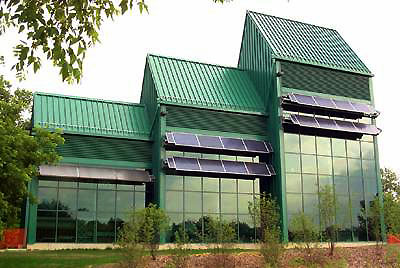A
new vision for Canada
Despite our
reputation, Canada is struggling environmentally. In an extensive
2005 study called The Maple Leaf in the OECD: Comparing
Progress Toward Sustainability, Canada finished 28th
out of 30 OECD countries on indicators such as air, water, waste
and climate change. Canadians are known for their love of nature,
but there is a large gap between our environmental values and our
environmental record.
To close this gap and put Canada on a true path to sustainability
by the year 2030, the David Suzuki Foundation has developed an action
plan called Sustainability within a Generation: A New Vision for
Canada. Written by leading environmental thinker, David Boyd, the
report clearly outlines the solutions to Canada’s environmental
challenges.
Over-consumption of natural resources and energy are the root causes
of Canada’s environmental woes. But reducing consumption does
not mean reducing our quality of life. To shift to a sustainable
economy, we need to focus on generating genuine wealth rather than
continuing to measure progress exclusively in financial terms. Genuine
wealth is a much broader concept that focuses on five key asset
areas: human, natural, social, manufactured, and financial capital.
Canada has the ability to become a world leader in sustainability
and environmental conservation . We can do this by:
download
the executive summary (PDF 118KB)
download
the full report (PDF 1MB)
Improving efficiency: Canada has a poor record of resource use,
and over 90 per cent of material extracted for use in manufacturing
goes to waste. We can improve by applying energy efficiency standards
to appliances, passenger vehicles, homes and commercial buildings.
Improving water efficiency standards, shifting to renewable energy
sources like wind, solar and micro-hydro would also help us achieve
this goal.
Eliminating waste and pollution: Eliminating waste means designing
production and consumption processes and patterns so that waste
is not created. In addition to reducing environmental impacts, reducing
waste can produce economic opportunities, create jobs, and save
money.
Building sustainable cities: We can promote regional and national
planning that integrates transportation, land-use and environmental
planning; and ensuring municipal infrastructure is sustainable and
based on smart growth. It’s also important to put an end to
urban sprawl, which causes air pollution, water pollution, habitat
destruction, gridlock, and loss of productive farmland.
For more information
about David Boyd, visit www.Unnaturallaw.com
|
